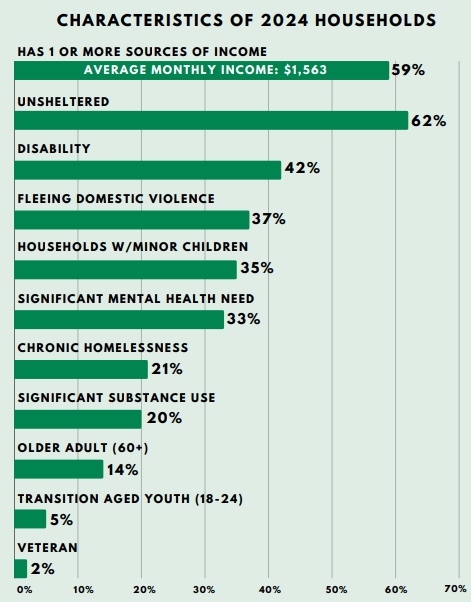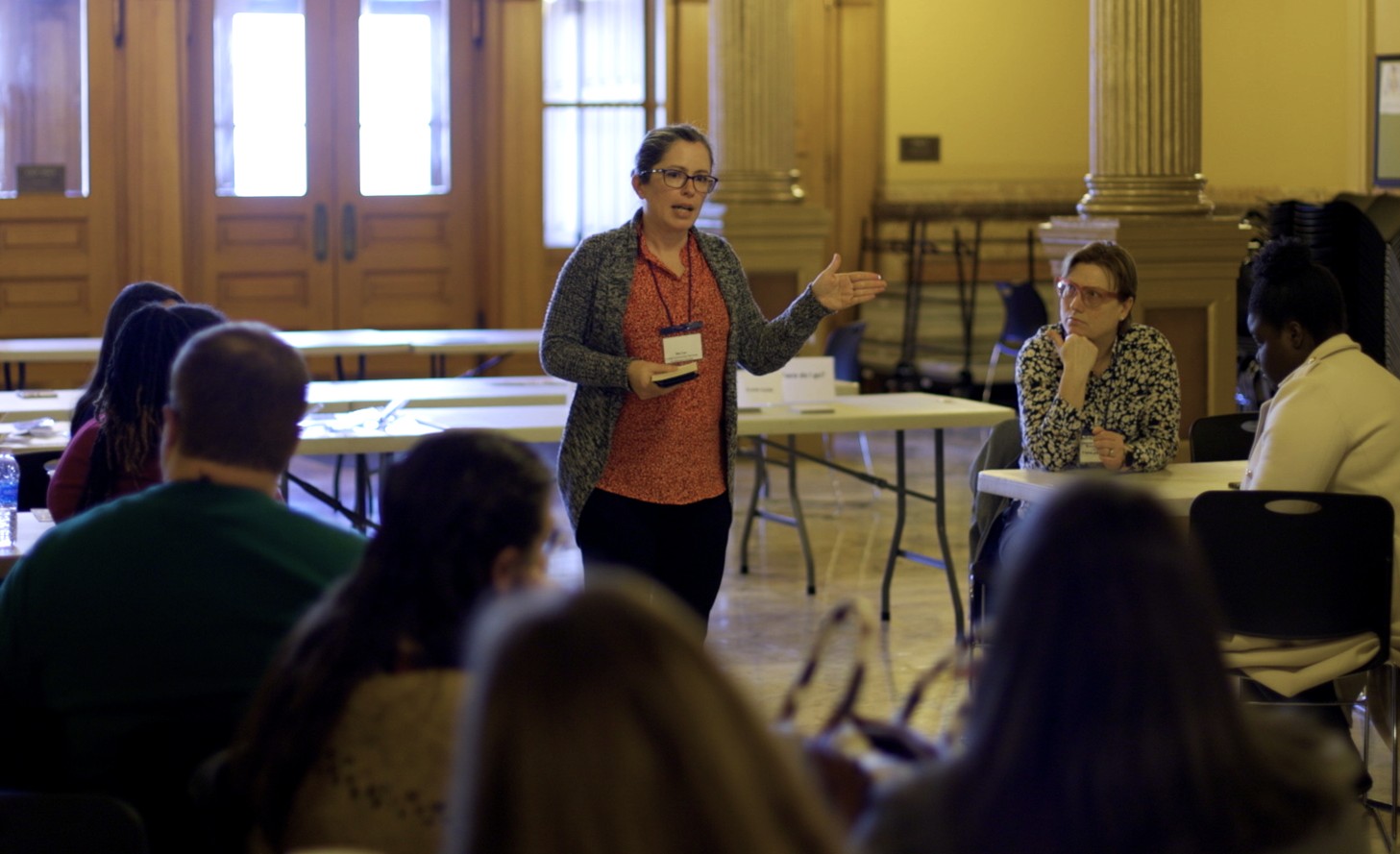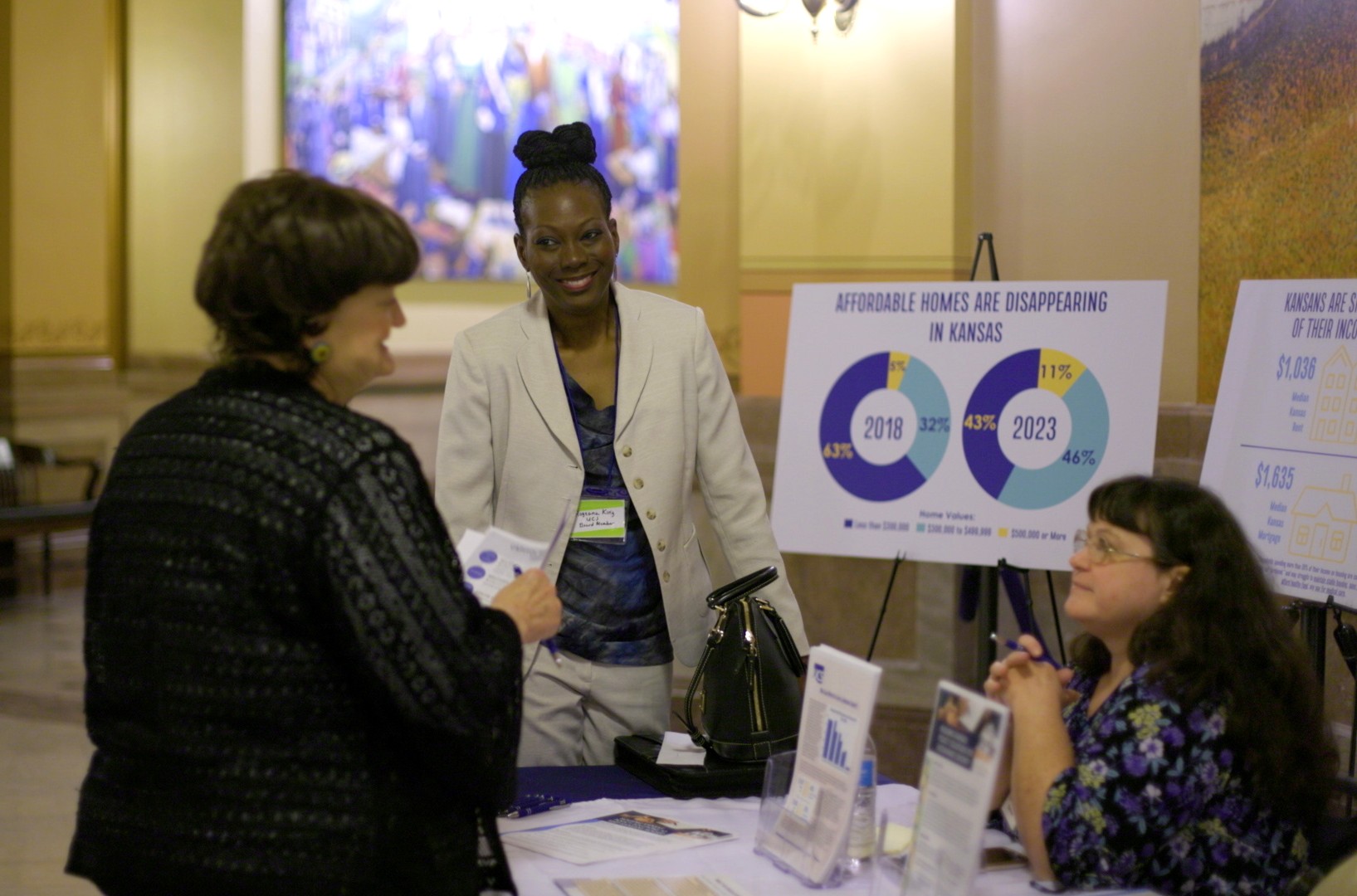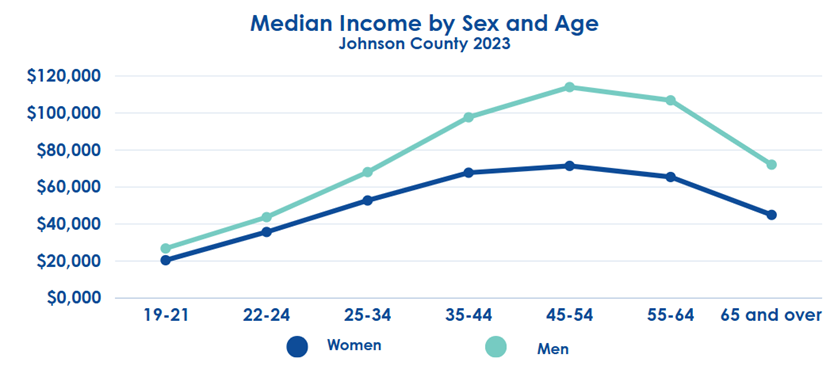Human Service Fund Grant Program Addresses Community Needs
The 2026 Human Service Fund application season opens soon. A virtual pre-proposal meeting for 2026 Human Service Fund (HSF) grants will be held in May and applications will be due in June.
Contact Erika García Reyes, erikag@ucsjoco.org for more information, or check out our website.
Priorities for 2026 Human Service Fund funding cycle:
Health and human service programs funded by the Human Service Fund must:
- promote self-sufficiency, well-being, and/or personal safety of Johnson County residents and fit within safety net investment components of basic needs, education/training, work and income supports, or health.
- offer county-wide services or fill a gap which results in county-wide benefit.
- offer equal access to all clients and prospective clients who could benefit from the program.
- deliver measurable outcomes which benefit county residents and, in the long-term, benefit local governments by avoiding, deferring, or preventing costs that otherwise might be incurred by local government.
Priority is given to programs that:
- address emergency aid and shelter, adequate housing, child/adult abuse, child welfare, health and mental health, work support services such as transportation, childcare and early childhood development, and job training.
- serve individuals and/or families with income below or near the federal poverty level.
- demonstrate innovation and/or collaboration in program delivery.
- are consistent with an evidence-based program, best practices or promising practices, or replicate a successful model.
- build the capacity of neighborhoods and local jurisdictions to support equity in the social determinants of health.
In 2024, HSF grantees provided services to more than 65,000 Johnson County residents. For 2025, HSF awarded $444,640 to 20 programs, including 2 programs through a “small grants” pool of funding for new, growing, and grassroots organizations to inclusively support smaller nonprofits. Watch the video below for more information about the Human Service Fund.
2024 Annual Homelessness Data Factsheet Released
UCS recently released the 2024 Annual Homelessness Data Factsheet. This factsheet includes year-round data from the Continuum of Care on Homelessness’ Coordinated Entry System, a count of the beds and units throughout the homelessness system, and the number of public-school students experiencing homelessness in Johnson County identified by the 6 school districts each school year.
The Coordinated Entry System is a network of trained staff at agencies throughout the county who assess a household’s circumstances and offer referrals to supportive services. For those households meeting homelessness criteria, a Coordinated Entry Screening is conducted and households with the most vulnerabilities are referred to an intermediate or longer-term housing program when the programs have openings. The chart below shows the characteristics of households assessed by the Coordinated Entry System in 2024. The full factsheet can be found here.

UCS and Partners from across Kansas Gathered for Capitol Hill Day

 UCS, the Kansas Housing Advocacy Network (KHAN), and the Kansas Statewide Homeless Coalition (KSHC) hosted an impactful Housing & Homelessness Capitol Hill Day on March 7, 2025. KHAN is a statewide network of advocates, representing all five continuums of care on homelessness (CoCs) in Kansas as well as individuals with lived experience and providers coordinating efforts to prevent housing instability and support those experiencing homelessness. KHAN exists to provide coordinated statewide data analysis, research, education, policy recommendations and messaging to improve housing security and end homelessness in Kansas. We know that Kansas has a housing shortage that is holding back economic growth, leading to greater housing insecurity and increased homelessness. Partners from across the state joined us for dozens of meetings with legislators and committee hearings where we addressed:
UCS, the Kansas Housing Advocacy Network (KHAN), and the Kansas Statewide Homeless Coalition (KSHC) hosted an impactful Housing & Homelessness Capitol Hill Day on March 7, 2025. KHAN is a statewide network of advocates, representing all five continuums of care on homelessness (CoCs) in Kansas as well as individuals with lived experience and providers coordinating efforts to prevent housing instability and support those experiencing homelessness. KHAN exists to provide coordinated statewide data analysis, research, education, policy recommendations and messaging to improve housing security and end homelessness in Kansas. We know that Kansas has a housing shortage that is holding back economic growth, leading to greater housing insecurity and increased homelessness. Partners from across the state joined us for dozens of meetings with legislators and committee hearings where we addressed:
 Building and maintaining affordable housing
Building and maintaining affordable housing- Extending property tax credits to cost-burdened renters
- Eviction mediation, sealing and expungement
- Supporting greater access to and availability of childcare for core workers
New Fact Sheet on Economic Outcomes for Johnson County Women Released
As Women’s History Month comes to a close, UCS is releasing a fact sheet focusing on economic outcomes for women in Johnson County. Johnson County is home to more than 314,000 girls and women of all ages who play a vital role in our society, culture, and local economy. According to 2023 data from the U.S. Census Bureau, more than 83% of women over age 16 are in the labor force. The median annual salary of women aged 25 or over is $53,943 — 70% of the median annual salary of men ($78,081). Read the full fact sheet here.



